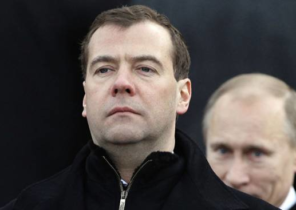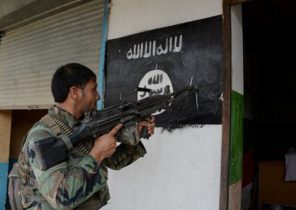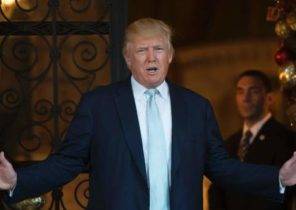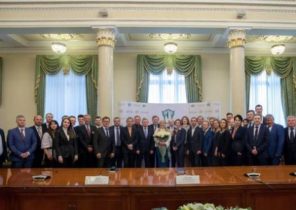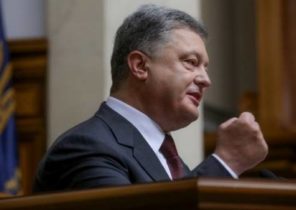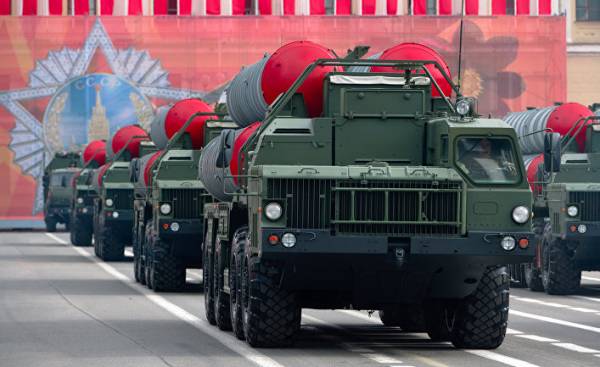
The problem of exporting tomatoes to Russia, which emerged with the crisis, which began in November 2015, is still not completely solved. Recently, however, it is reported that the s-400, which Turkey plans to buy from Russia, the signatures were affixed. Meanwhile, the Russian side said that the topic of tomatoes will again be discussed.
“Airplane crisis” that occurred in November 2015, has caused considerable tension in relations between Russia and Turkey. His result was a plethora of constraints in the interaction between the two countries. After the talks the presidents of Russia and Turkey Vladimir Putin and Recep Tayyip Erdogan, the ice in the relations between the two countries thawed. However, the restrictions imposed by Russia against the Turkish exports of vegetables and fruits, including tomatoes, was still not completely removed. Over the past two years on this subject took a lot of negotiations with different departments, but primarily the situation with the tomatoes remained unchanged.
Over the past months, the two leaders again met and discussed the issues of bilateral agenda, including the export of tomatoes and s-400 missiles. As reported the press Secretary of the President of Russia Dmitry Peskov, the presidents Erdogan and Putin agreed on the systems s-400. And, according to a statement by the Vice-Premier of Russia Arkady Dvorkovich, in the framework of the 86th Izmir international fair, which will take place from 18 to 22 August, the Turkish and Russian officials will discuss topics such as energy, industry, bilateral trade, including the import of tomatoes to Russia. “This will be the first full format of consultations on this subject, but it is too early to talk about whether or not to lift the ban,” — said Dvorkovich.
In one of his earlier statements by Deputy Prime Minister Arkady Dvorkovich noted that the speech can go about the import of tomatoes in limited quantities for use in the production of such products as sauces, juices. The Minister of food, agriculture and livestock of Turkey Ahmet ESREF Fakibaba (Ahmet Eşref Fakıbaba), commented on this statement, said that the day before he held talks with Deputy Minister of agriculture of Russia, and stressed that this issue will be resolved in negotiations with two important regional leaders — erdoğan and Putin, however, he is not competent in this matter.
Digital signatures, we see in our country
Last April, the Minister of national defence of Turkey Fikri Işık (Fikri Işık) stated that in negotiations with Russia on missiles s-400 going to the final stage. And yesterday the President Erdogan said: “Why s-400 should be the reason for the tension? Each country should take the perfect measures to ensure their own safety. Here NATO. For many years Greece, the country is a NATO member, uses s-300. Why are they concerned? We are now done with the Russian Federation the necessary steps and, God willing, we will see the s-400 missiles in our country. We will also work on their joint production.”
The history of sanctions began in January 2016
When a Russian plane entered Turkish airspace on 24 November 2015 and ignored turned to him with the warning, this led to tensions in relations between the two countries. The destruction of Turkey, the Russian aircraft resulted in economic sanctions. The sanctions, which came into force from January 2016, the first phase involves the introduction of restrictions on the import of 17 types of products from Turkey. Among them were tomatoes, the most important export commodity. After these sanctions, the export of tomatoes from Abkhazia to Russia has increased almost 15 times. In the first month of 2016, the export of tomatoes from Turkey have decreased by 71% and fell to $ 11 million. While numerous meetings between representatives of the two countries did not give results over the last two years was destroyed tons of tomatoes Turkish origin who tried to smuggle into Russia. The fact that during the visit of Deputy Prime Minister Mehmet Simsek (Mehmet Şimşek) in April 2017, the problem has not been solved, it became clear by the statements of the Minister of agriculture of Russia. Then Alexander Tkachev said that Russia does not intend to open its market for Turkish tomatoes. Now the picture is about the same. In recent years, Russia, as noted by some officials, decided to buy tomatoes from Turkey in certain seasons, when domestic producers do not produce these products, in addition to tomatoes, Russia may be imported and such products as tomato paste. The export will be carried out three companies whose products meet the technical requirements.
